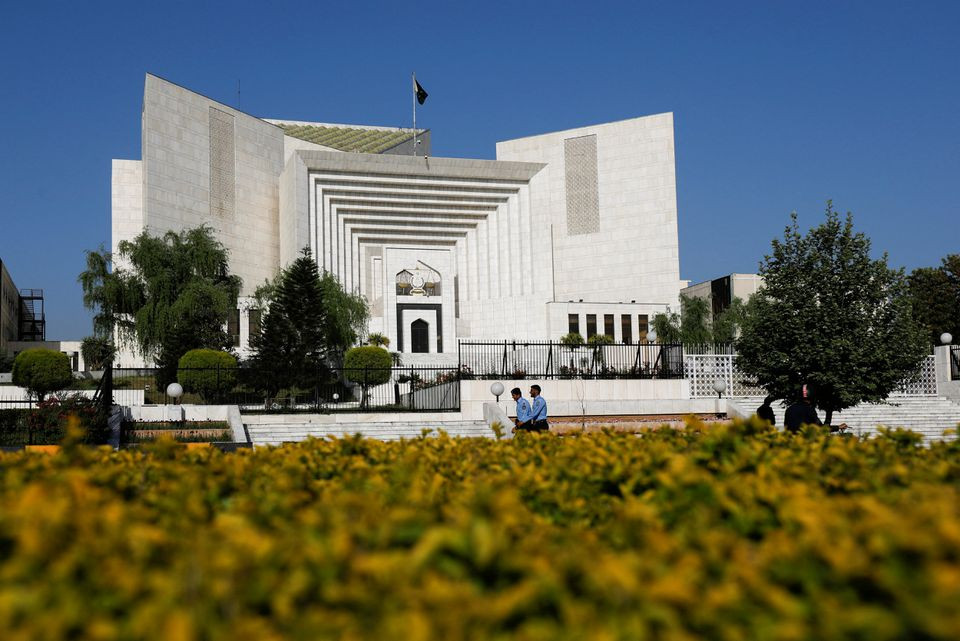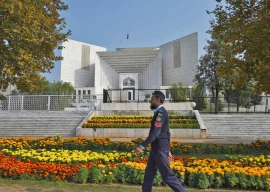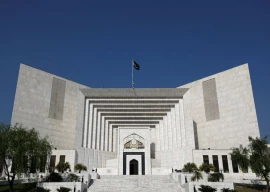
It has been ruled that the use of the title “honourable” with “inanimate” institutions, including the courts, is “linguistically inappropriate”.
“Judges may be referred to as honourable (or the abbreviated hon’ble) or learned. Any use of language that is respectful and concise is sufficient. However, it is irksome when these honorifics are used profusely,” read a five-page order authored by Supreme Court’s Justice Qazi Faez Isa in a service matter.
An SC division bench, led by Justice Isa, also expected litigants, lawyers and judges to adhere to its observations to ensure clarity, brevity and to avoid the perception of being “obsequious”.
The order noted that honourable (or honorable) was not to be used as an honorific or prefix with inanimate objects and institutions, including all courts.
Also read: SC directs ECP to submit progress report on voting right for expats
“A practice seems to have developed among lawyers and judges of using the honorific honourable/hon’ble and learned when referring to the Supreme Court and the High Courts,” it stated.
“At times, the Supreme Court is also referred to as ‘August Court’ or ‘Apex Court’. However, such honorifics or prefixes are not used with other institutions such as parliament, Senate, National Assembly or the provincial assemblies, which naturally leads one to question the distinction,” the verdict added.
The judgment noted that the Constitution referred to the SC as the Supreme Court and to the HCs as high courts.
“The Constitution also does not use any prefix or honorific before these courts nor uses the terms August or Apex for the Supreme Court. It serves us best when we use the language of the Constitution with regard to [the] institutions mentioned therein. Those whose vocation requires proper use of language should strive for accuracy, and for advocates and judges the preference should be to use the language of the Constitution,” the order read.
The verdict observed that in the birthplace of the English language, the Supreme Court and high courts were neither referred to as honourable or learned.
Also read: New audio leak adds to controversy surrounding top judges
“The British Parliament, which is referred to as the mother of parliaments, is also not referred to as honourable. However, members of the British Parliament are referred to as honourable. [The] usage of the honorific ‘honourable’ with inanimate institutions, like courts, is linguistically inappropriate,” it pointed out.
The order noted that English was not the mother tongue of most Pakistanis and therefore, mistakes did occur in its usage.
“Accordingly, we consulted dictionaries to ascertain when the honorific honourable (in American English the letter ‘u’ is dropped) is used. Therefore, our understanding that honourable (or honorable) is not to be used as an honorific or prefix with inanimate objects and institutions, including all courts, stands confirmed,” the verdict concluded.






1725254039-0/Untitled-design-(24)1725254039-0-270x192.webp)
1732189200-0/Express-Tribune-(13)1732189200-0-270x192.webp)



1732186994-0/Untitled-design-(10)1732186994-0-270x192.webp)








COMMENTS (1)
Comments are moderated and generally will be posted if they are on-topic and not abusive.
For more information, please see our Comments FAQ